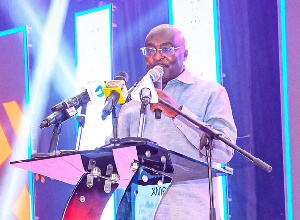Business News of Friday, 12 December 2014
Source: GNA
West Africa's GDP to improve in 2015 despite Ebola
West Africa's economy is expected to see increased growth in 2015 despite the devastating impact of Ebola on some countries, Ms Hanna Tetteh, the Minister of Foreign Affairs and Regional Integration, has said.
The sub regions' real Gross Domestic Product (GDP) growth is projected to hit 7.1 percent next year as against 6.3 percent in 2014, she said at the opening of the 73rd Session of the ECOWAS Council of Ministers meeting in Abuja.
Ms Tetteh is chairing the three-day meeting which will review progress made and deliberate on pertinent issues important for the future of the sub region.
Ms Tetteh told the Council of Ministers that in spite of challenges the sub region was experiencing, economic outlook for 2015 was bright with the bloc's GDP comparing favourably with eastern and southern Africa regions whose growth rates for 2015 are projected at 6.2 percent and 4.4 percent respectively.
Nigeria will account for nearly 78 percent of ECOWAS' GDP in 2015, being the biggest economy on the continent.
Ms Tetteh said despite setbacks posed by Ebola, progress had been towards the implementation of the ECOWAS Multilateral Surveillance Mechanism and the road map for a single currency for the sub region.
She told the Council that negotiations in the Economic Partnership Agreement between Europe and West Africa was at completion stage, adding that consensus reached focused on market access offer, financing of the EPA Programme for Development, text of the agreement and rules of origin.
On infrastructure development, Ms Tetteh said efforts had been geared towards the implementation of several programmes including the ECOWAS Joint Border Post Programme, Axel Load Harmonization Policy and the Nigeria-Cameroon Multinational Highway and Facilitation Programme as part of the Trans-Africa Highway Programme.
In 2014, ECOWAS strengthened efforts to promote regional economic integration to consolidate the common market, harmonise trade policies and fully implement the trade liberalization scheme.
ECOWAS' Common External Tariff is expected to commence January 1, 2015.
Ms Tetteh urged the Council to double efforts in the fight against the Ebola virus and said the issue should be considered as a critical development issue with far reaching short, medium and long term social and economic implications for the sub region.
"It cannot be overemphasized that socio-economic set-backs in the three most endemic countries affect the entire ECOWAS region as well," she said.











